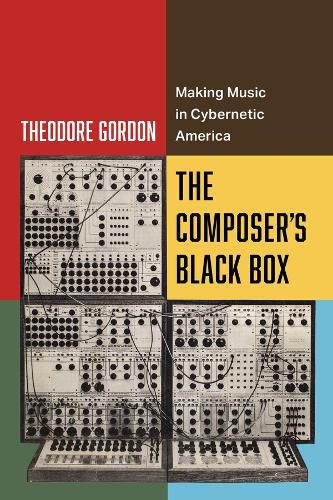Readings Newsletter
Become a Readings Member to make your shopping experience even easier.
Sign in or sign up for free!
You’re not far away from qualifying for FREE standard shipping within Australia
You’ve qualified for FREE standard shipping within Australia
The cart is loading…






Stories about new musical instruments are often told as quests for new kinds of sounds. The Composer's Black Box asks, What happens when new musical instruments produce not only new sounds but also new dynamics of musical agency and control? And what consequences do those new dynamics have for musicality beyond sound? With a focus on five key figures-Morton Subotnick, Pauline Oliveros, Donald Buchla, Alvin Lucier, and Sun Ra-this book explores how scientific and technological developments in mid-twentieth-century America galvanized musicians to reconfigure their conceptions of sociality, freedom, and the creative self. Theodore Gordon shows how cybernetic thinking in a range of disciplines, from experimental music to jazz and electrical engineering, shaped musical techniques and technologies and changed what it means to be a composer-or, more broadly, a music-making human-in an increasingly informational world.
$9.00 standard shipping within Australia
FREE standard shipping within Australia for orders over $100.00
Express & International shipping calculated at checkout
Stories about new musical instruments are often told as quests for new kinds of sounds. The Composer's Black Box asks, What happens when new musical instruments produce not only new sounds but also new dynamics of musical agency and control? And what consequences do those new dynamics have for musicality beyond sound? With a focus on five key figures-Morton Subotnick, Pauline Oliveros, Donald Buchla, Alvin Lucier, and Sun Ra-this book explores how scientific and technological developments in mid-twentieth-century America galvanized musicians to reconfigure their conceptions of sociality, freedom, and the creative self. Theodore Gordon shows how cybernetic thinking in a range of disciplines, from experimental music to jazz and electrical engineering, shaped musical techniques and technologies and changed what it means to be a composer-or, more broadly, a music-making human-in an increasingly informational world.